_We may earn revenue from the products available on this page and participate in affiliate programs. Learn more ›
_
BEST ALL-AROUND
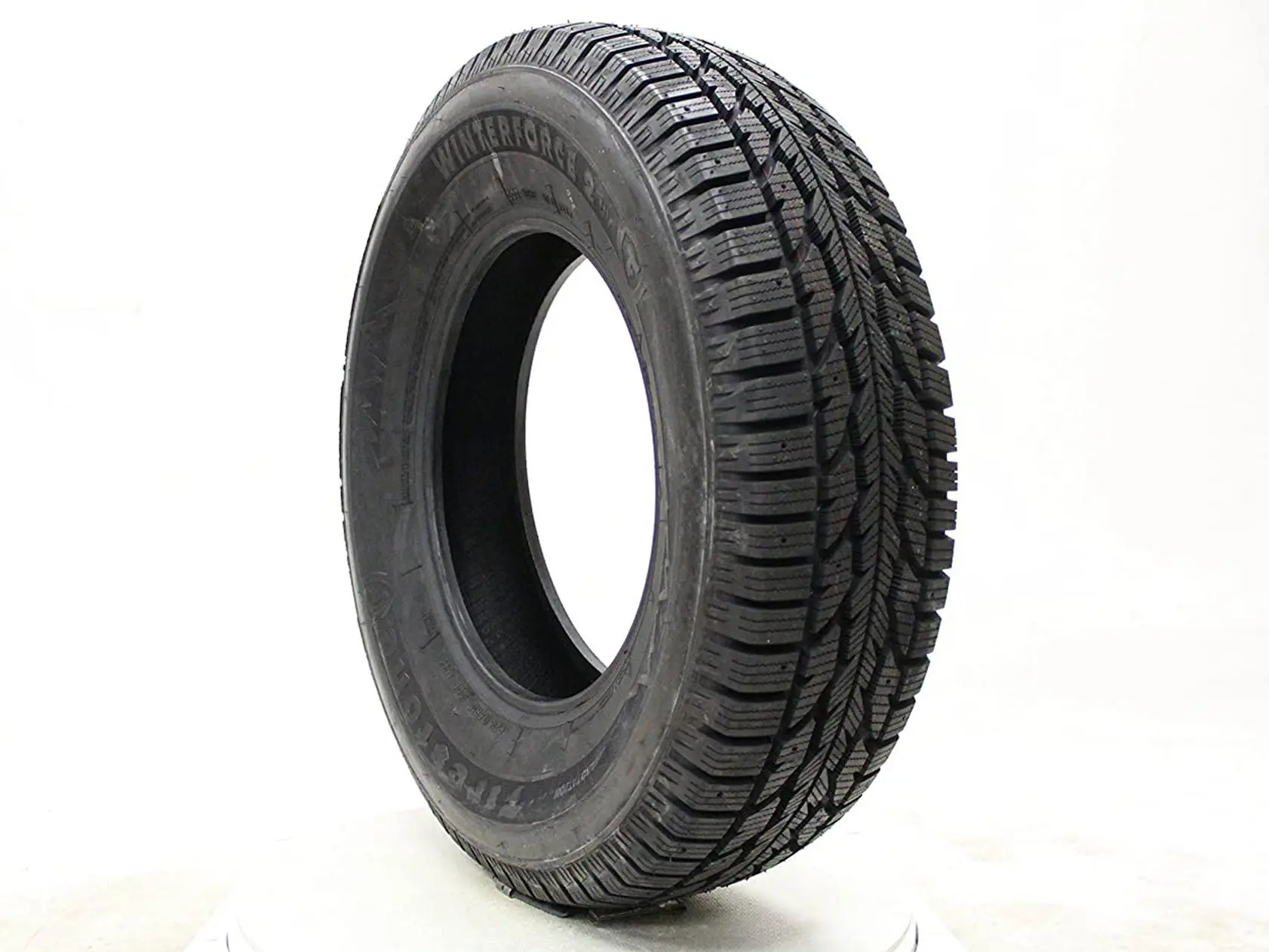
Firestone Winterforce 2 Winter/Snow Passenger Tire
LEARN MORE
Summary
This is an all-winter performer you don’t have to worry about when roads clear between storms.
BEST STUDDABLE
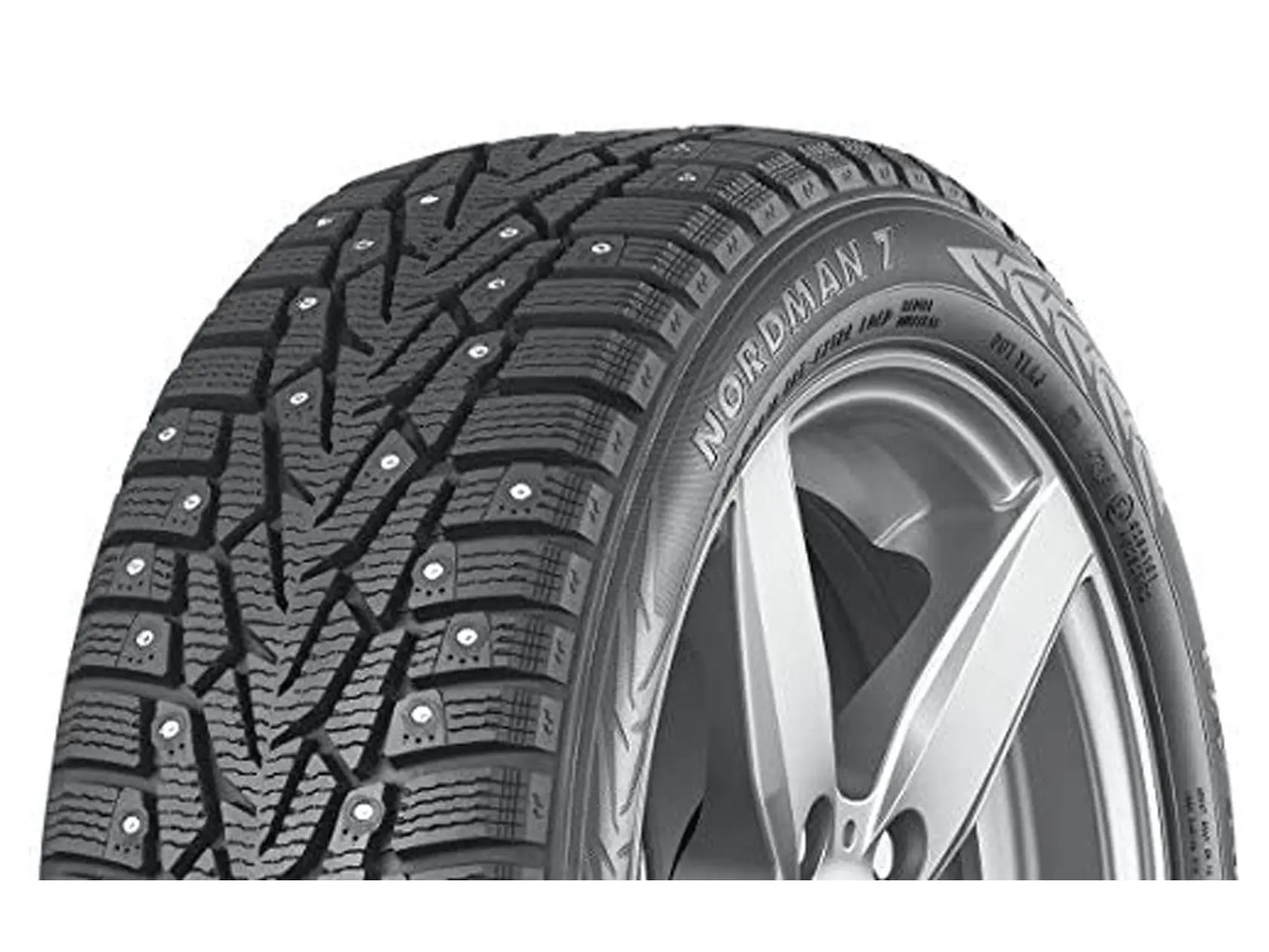
Nokian Nordman 7 Studded Winter Tire
LEARN MORE
Summary
A winter tire that comes from the factory pre-studded with metal studs is the best option for serious winter conditions.
BEST BUDGET
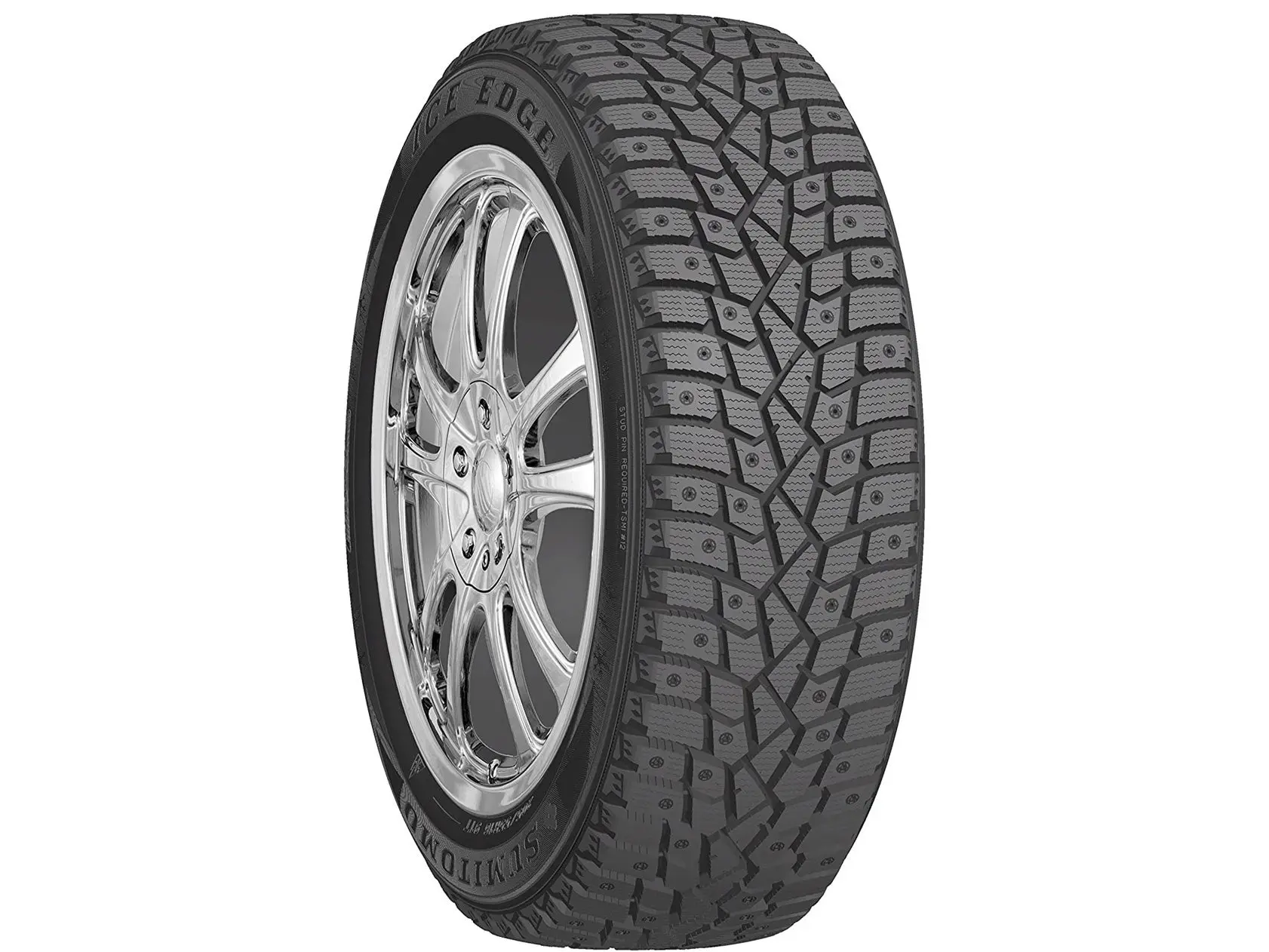
Sumitomo Ice Edge Snow Radial Tire
LEARN MORE
Summary
Smartly designed tread channels push slushy snow and ice off the tire for maximum grip.
Snow tires are your best way to keep a grip on the roads this winter, and there are tons of options available for everything from tiny sedans to backwoods-worthy pickup trucks. Snow tires differ from all-weather tires because they are made with specialized rubber compounds that are designed to provide grip in frigid conditions, and the aggressive treads provide friction when you need it but will collect snow and thus provide traction on snowy surfaces (snow sticks to snow). Snow tires come in both studded and un-studded models, so you can fine-tune your choice to where you live. Since snow tires are built a bit differently than standard passenger tires, it’s important to make sure that the tires you want match the year, make, and model of your vehicle.
Best All-Around: Firestone Winterforce 2 Winter/Snow Passenger Tire
Best Studdable: Nokian Nordman 7 Studded Winter Tire
Best for Passenger Vehicles: Bridgestone Blizzak WS80 Winter/Snow Passenger Ti
**re
**
Best for Pickup Trucks: Firestone Winterforce 2 UV Winter/Snow SUV Tire
Best for Variable Conditions: Cooper Evolution Winter 235/55R18 100H Tire
Best Budget: Sumitomo Ice Edge Snow Radial Tire
Best Snow Tires: Reviews and Recommendations
Best All-Around: Firestone Winterforce 2 Winter/Snow Passenger Tire
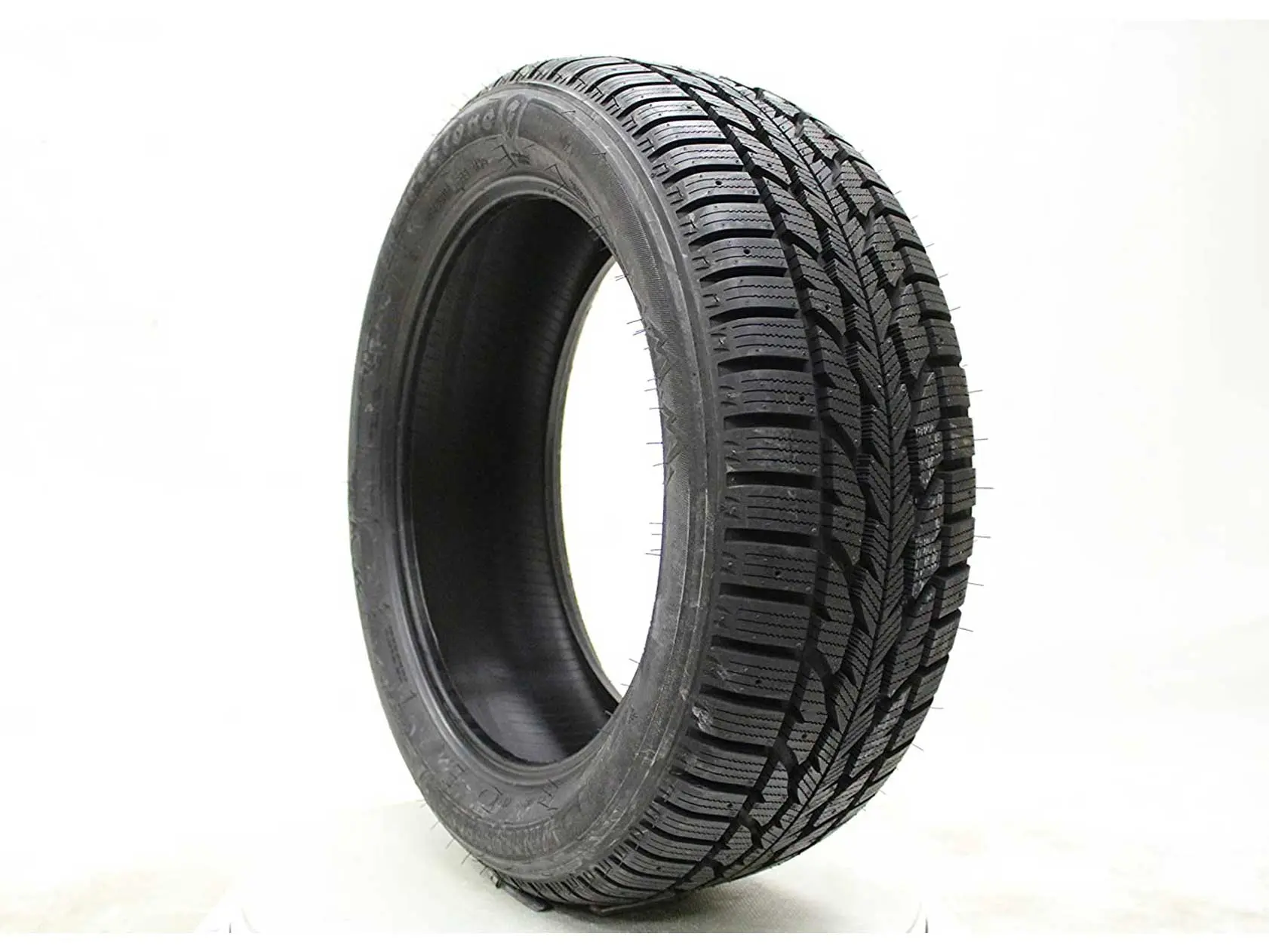
This is an all-winter performer you don’t have to worry about when roads clear between storms. Firestone
Designed for sedans, wagons, and minivans, this is a great snow tire for family vehicles
and anyone not trucking heavy loads through extreme conditions. The proven 3-Peak Mountain Snowflake design grabs both wet and dry snow with ease. And the tires are pre-pinned for #11 studs if you decide to take a break for a weekend at the slopes.
Best Studdable: Nokian Nordman 7 Studded Winter Tire

A winter tire that comes from the factory pre-studded with metal studs is the best option for serious winter conditions. Nokian
If you’re looking for a snow tire for the toughest driving conditions, with deep snows all season long, a quality studded tire is the way to go. You don’t have to worry about installing accessory studs, and you can be assured that the tire and the studs are designed to work seamlessly as one unit. These studded winter tires work great
on passenger vehicles, crossover SUVs, and minivans, giving you an extra measure of both confidence and safety when the going gets snowy.
Best for Passenger Vehicles: Bridgestone Blizzak WS80 Winter/Snow Passenger Tire
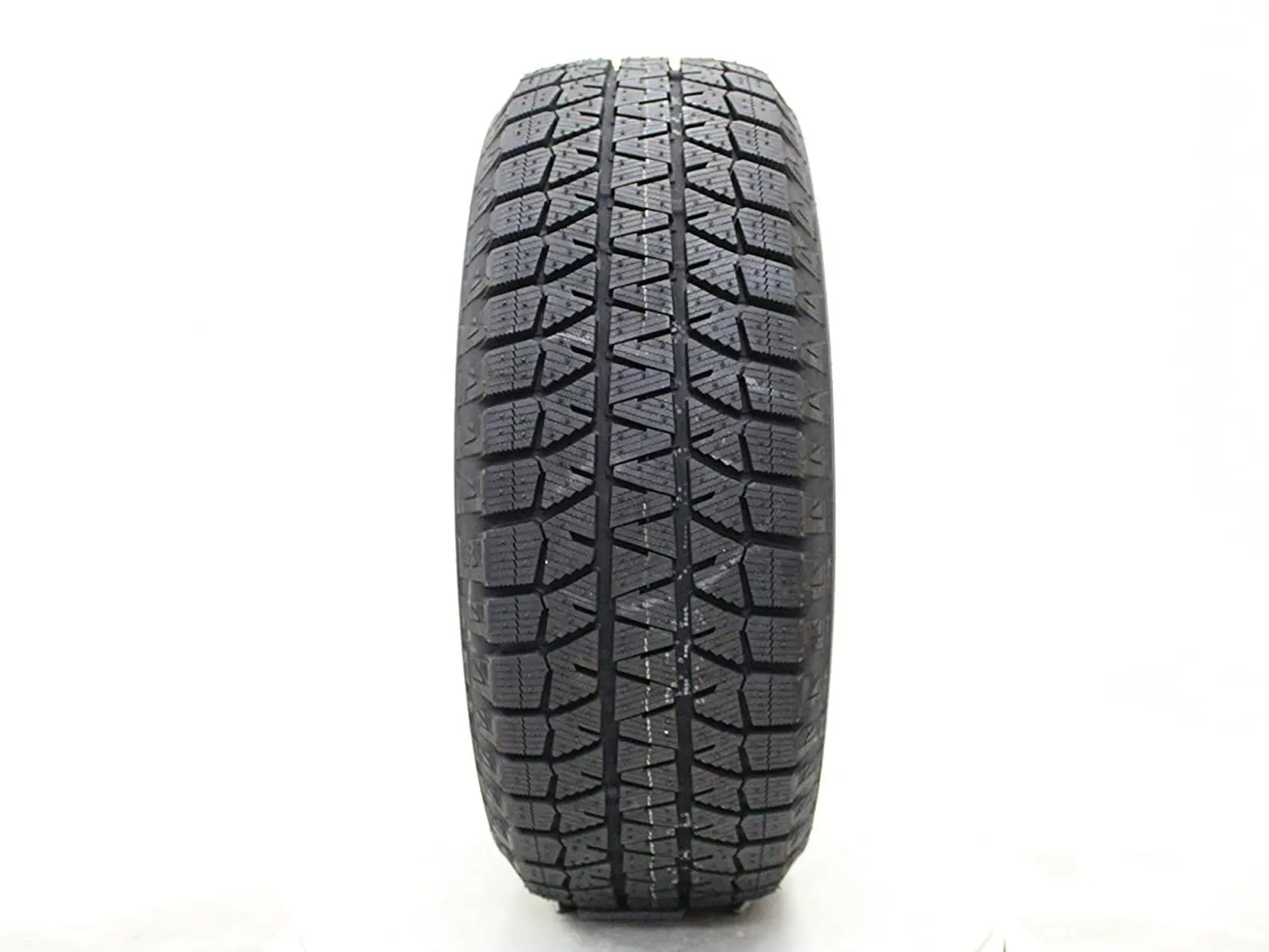
If you want to drive safely without looking like you’re headed to an off-road race, check out these tires that combine performance with an understated look. Bridgestone
Instead of relying on studs and monster-truck tread patterns, this tire
is built with a special hydrophilic coating that sheds water, and tiny, super-hard tread bite particles that keep you from slipping and sliding. They’re good-looking tires that perform well on both snowed-over streets and highways with intermittent slick spots.
Best for Pickup Truck: Firestone Winterforce 2 UV Winter/Snow SUV Tire

From the treads to the sidewalls, these tires are designed to grip sloppy winter roads and deep snow drifts. Firestone
When you’re headed for the back of beyond, you can’t take the chance of getting stucky in wintry conditions. These brawny winter tires
for trucks and SUVs have the tread and rubber composition technology that provide for maximum grip. These aren’t the tires you’d want to choose for a long road trip, but if you absolutely have to get to the woods and then get home safely, get these.
Best for Variable Conditions: Cooper Evolution Winter 235/55R18 100H Tire
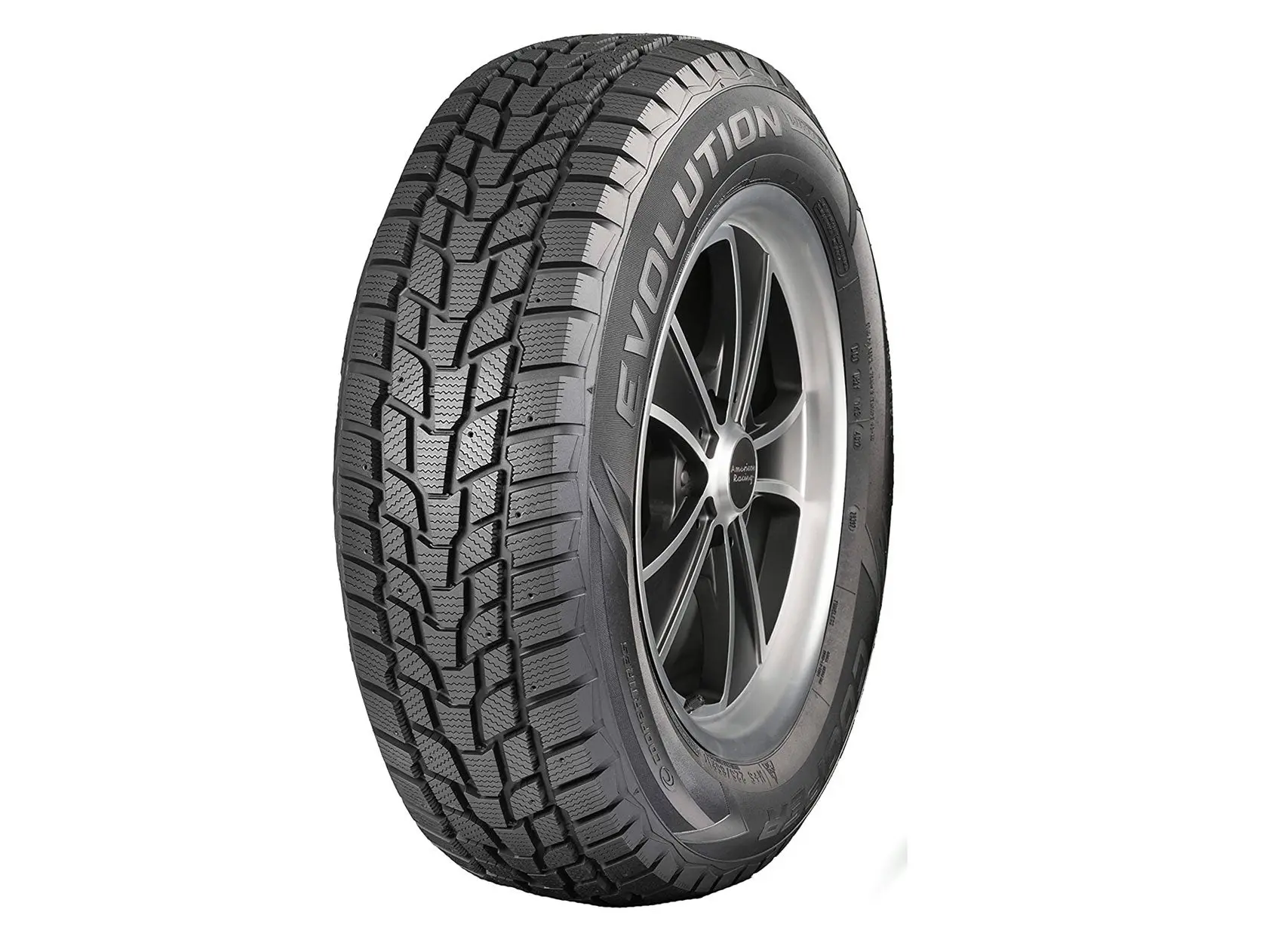
Designed for serious snow travel without the loud road noise, this tire is an excellent choice for early winter and early spring conditions. Cooper
Don’t think this isn’t a serious winter tire. It is. You can add studs for additional grip and superior performance in ice conditions, and the specialized tread pattern is designed to grip snow when you’re on the go and clear the snow from the lugs as the tire spins. But it’s also designed to ride smoothly and quietly when the going isn’t so tough, so these tires are a great choice
for when you want to install snow tires and not think about them again till it’s almost bathing suit season.
Best Budget: Sumitomo Ice Edge Snow Radial Tire

Smartly designed tread channels push slushy snow and ice off the tire for maximum grip. Sumitomo
proves that you can just about have it all–a highly engineered snow tire built with especially formulated rubbers for frigid conditions, that gives you the option of adding more grip with studs, for not a lot of money. Plus, these are good-looking tires.
Features To Consider When Shopping For Snow Tires
When choosing snow tires, match the tire’s technology with your driving style. All the choices below perform well in snowy conditions, but you can definitely increase grip with specialized designs and add-ons such as metal or rubber studs. Think about where you’re likely to drive and how often you’ll venture from city streets before dialing in on a winter tire that will get you there and back.
Do you want snow tires that perform well in non-snow conditions?
Snow tires are built with higher-grade materials than conventional tires, so you can drop a bundle in a hurry. But there are great choices that balance cost and on-the-road performance, so think about how much you drive in the snow or ice before investing in tires. If you’re looking for an overall solution to winter driving, you should avoid studded tires, which can tear up roads and cause other damage when the streets aren’t covered over with winter snow and ice. And you may not need heavy-duty tires designed for large loads if you’re mostly concerned about getting safely around town or making the occasional trip along a snowy highway.
Choose a solid all-around performer and you can put the tires on at the beginning of the winter season and leave them on until spring. That way you save the hassle and expense of having tires taken on and off. The job becomes much easier if you keep snow tires mounted on an extra set of wheels so you don’t have to pay for an extra step at the car shop.
Do you need studded snow tires?
Tire studs are small metal or rubber devices that fit into pre-molded channels in the tire treads. They afford a much higher level of traction to winter tires, as the studs bite and grip into icy surfaces.
One downside is when roads are clear. The studs on the tires prevent the tread from making full contact with the pavement. Also consider that studded tires aren’t allowed everywhere. Since they can cause road damage when used improperly, some states ban them outright, and other regions require that they only be used in the winter months. And some areas ban metal studs, but allow tires with rubber studs. Always check local regulations before installing studded snow tires in the winter.
Do you want winter tires for in-town use?
Not everyone needs a tire for climbing mountains in winter. Plenty of folks are looking for an extra cushion of safety while on the way to the grocery store or to drop the kids off at school. If your winter driving will largely be limited to in-town streets and shorter trips, you might find a more comfortable ride and smoother handling with a tire designed for passenger vehicles in slick but less-than-extreme conditions.
A snow tire for everyday passenger use will still be constructed of rubber and materials made for frigid temperatures, and come with specialized tread designs that will offer traction during both acceleration and braking. But many of these tires are designed for a more comfortable ride on less wintry roads for those times streets have been largely cleared. Unless you need a snow tire for truly difficult conditions, consider tires made with both comfort and winter performance in mind.
Do you need snow tires for a pickup truck?
Winter might be the season of tough driving conditions, but it’s also the season when hunters, snowmobile enthusiasts, and other hardcore winter sports participants hit the roads. If you’re driving a pickup truck in winter conditions, you’re in luck: The larger wheel wells and brawnier wheels on pickups allow you to swap out your city tires for winter tires that will take you to the back of beyond.
This is the time to step up to heavier-duty tires for harder use. Look for features such as aggressive tire shoulder treads to bite into deep snowy ruts, and open treads that will collect snow and provide traction on snowy roads (because snow grips to snow). You don’t necessarily have to spring for studded tires, but if you choose a tire model with full-length treads, they’ll last for year after year. The best snow tires for trucks is an investment worth making.
Do you need winter tires for driving on occasional snow?
Snow tires work great when used in wintry conditions, but there are plenty of times when you need solid traction in snow and ice one day, and then a few days later the roads are mostly clear down to bare pavement. It’s times like these when you can’t use studded tires, as they can damage road surfaces. And you might not need a super-aggressive tread pattern or knobby lugs on sidewalls. That’s when you want a quality tire designed for shifting conditions.
Such tires have the tread it takes for acceleration and stopping power when it’s slick outside. But you won’t have to worry about changing tires, or damaging roads or even your vehicle, when the sunshine shows and snows melt away. The special rubber compounds in winter tires still make them a season-specific choice. But there are definitely options that perform well on both snowbound and sunshine days.
Do You Want Inexpensive Snow Tires?
The great thing about buying a set of budget-friendly winter tires is that you don’t have to lose all the tread technology and winter-specific rubber compounds that made them so effective. You might have to choose a tire with a little less durability, but that’s OK. You won’t be running the tires year-round anyway. You can still find tires that are studdable, have smartly designed treads that maximize bite on snowy roads, and are made to perform well in sub-freezing temperatures. If you’re watching your dollars, don’t hesitate to choose a less-expensive winter tire. You’ll still be better off than driving in snow, slush, and ice on standard or even all-weather tires.
FAQs
Q: Who makes the best snow tires?
The best snow tire brands depend on how you’ll use the tires, and how long they’ll be on your vehicle. Major brands such as Firestone and Cooper make great snow tires. But these are specialty products, so you might also consider smaller, specialized makers such Nokian and Sumitomo.
Q: Should I put 2 or 4 snow tires on my car?
When choosing between purchasing 2 or 4 snow tires for your car, don’t cut corners. Go ahead and buy a full set of 4 tires. The specialized rubber and designs provide serious traction and turning ability, and you don’t want mismatched per performance that can make it difficult and dangerous to steer the car. Extend the life of the tires by rotating them.
Q: When do I put snow tires on my car?
The easy answer to when you should put snow tires on your car is before you need them! But first, think through your driving regimen and the conditions where you live. It’s OK to run non-studded snow tires on bare asphalt and pavement, but if you mount studded tires on your car, you shouldn’t drive on roads that aren’t covered with snow.
Final thoughts: Best Snow Tires
Best All-Around: Firestone Winterforce 2 Winter/Snow Passenger Tire
Best Studdable: Nokian Nordman 7 Studded Winter Tire
Best for Passenger Vehicles: Bridgestone Blizzak WS80 Winter/Snow Passenger Ti
**re
**
Best for Pickup Trucks: Firestone Winterforce 2 UV Winter/Snow SUV Tire
Best for Variable Conditions: Cooper Evolution Winter 235/55R18 100H Tire
Best Budget: Sumitomo Ice Edge Snow Radial Tire
Snow tires aren’t a year-round solution. You should only use snow tires during the winter months when winter driving can be a hazard. .That means a good set of snow tires will last far longer than your standard tires. Since your safety is on the line, don’t cut too many corners.
Why Trust Us
For more than 125 years, Field & Stream has been providing readers with honest and authentic coverage of outdoor gear. Our writers and editors eat, sleep, and breathe the outdoors, and that passion comes through in our product reviews. You can count on F&S to keep you up to date on the best new gear. And when we write about a product—whether it’s a bass lure or a backpack—we cover the good and the bad, so you know exactly what to expect before you decide to make a purchase.





